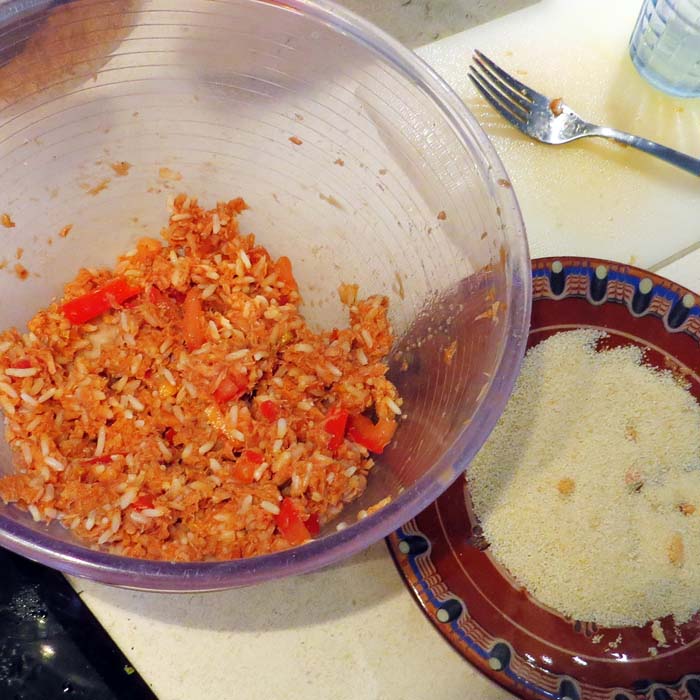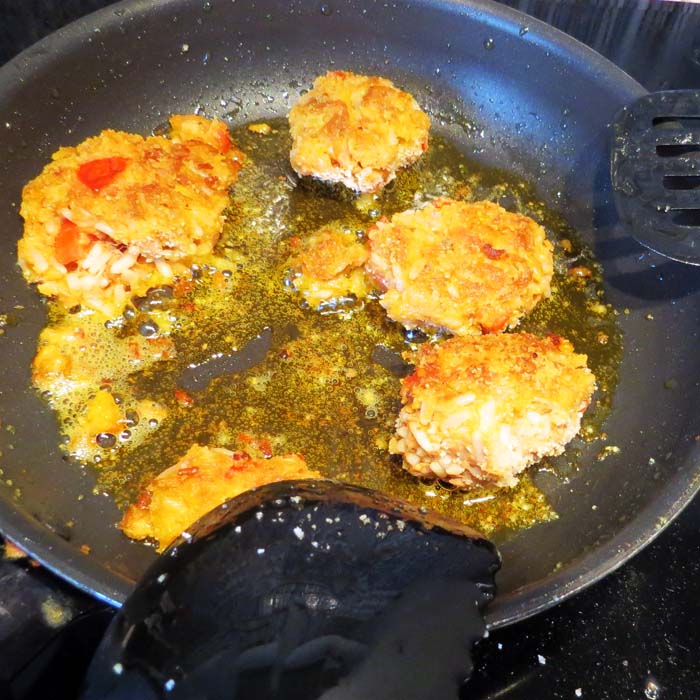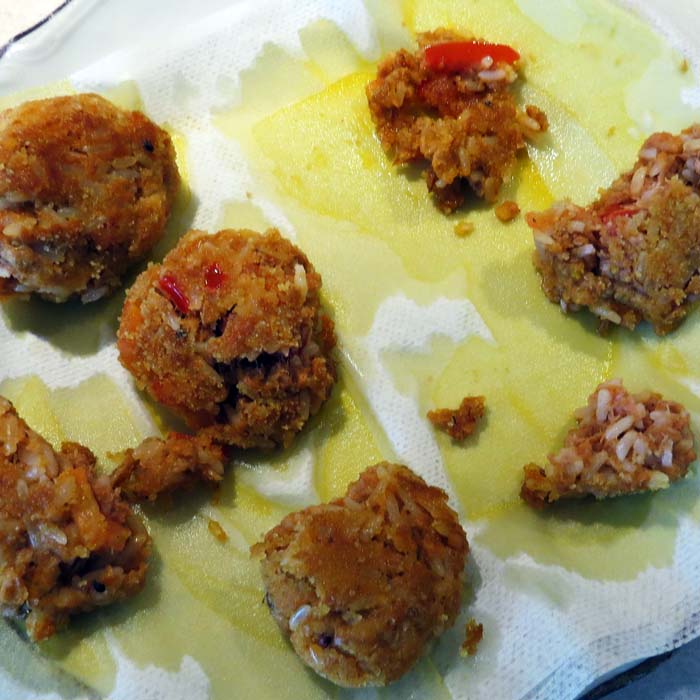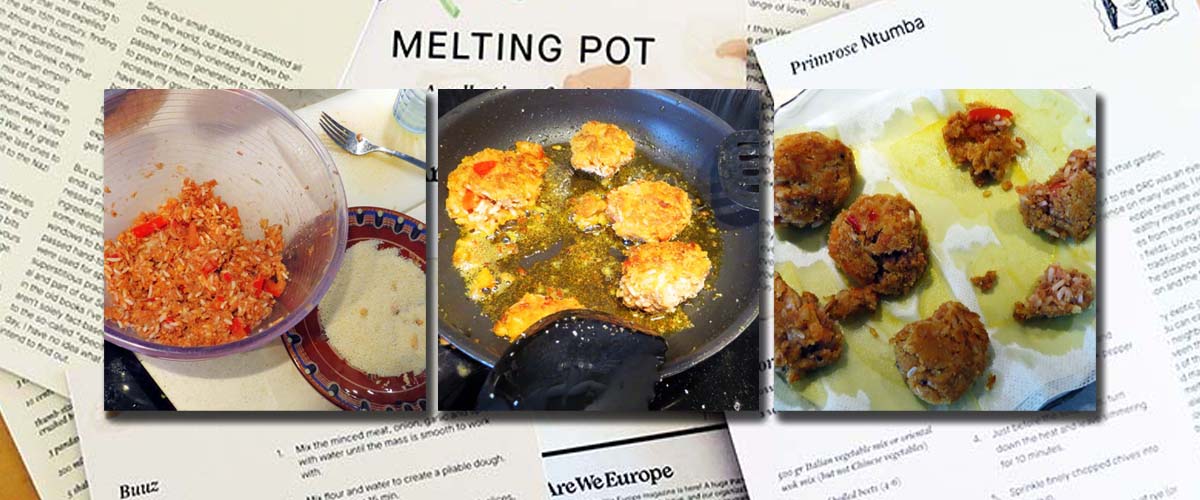My sister and my mother say that my grandmother, my mother’s mother, was a lousy cook. This is strange because in my memory it’s my mother who couldn’t cook. Her efforts with fish have left me with a permanent lack of interest in fish dishes that distresses my fish-loving wife.
Whenever Mrs SC suggests a fish dinner, my enthusiasm is always and obviously forced. No matter that whatever fish she cooks, it’s always delicious. My upbringing and my first 18 years experience of my mother’s cooking, even 45 years after I left home, has left me conditioned against fish. The bare mention of fish as food puts me in mind only of my mother’s fish in cheese sauce. I’ve never fully understood how it is possible to bake cod soaked in cream and melted cheese and still turn the fish dry and thready. Nor to inevitably burn the sauce leaving it with a thick blackened skin, the remnants of which have to be soaked overnight for any hope of washing the oven dish clean.
Gran’s salmon cutlets
To get back to my grandmother. In my memory she is the person who taught me how to make shortcrust pastry. She is the person who taught me how to bake biscuits. And she is the person who made what she called salmon cutlets.
These did not involve salmon and they were not cutlets. More like fishcakes made out of tinned tuna. She made them, in my memory, often, and served them up warm as finger food, cold with a salad, or warm or cold as a sandwich filling between two slices of bread. They were not gourmet food, but they were a comfort, and a dish I always associated with her.
Whatever else she taught me, she did not teach me how to make her cutlets. I have watched her making them, though, so I have a sketchy memory of the ingredients. Tinned tuna, left over rice, chopped tomato, an egg … but what else? Sadly, Gran died in 1992 so her recipe is long gone, and I’ve not eaten her salmon cutlets for well over 30 years.
Nor had I really thought about them for a long time. Not until the other week, when I received an envelope of recipes from a new magazine, Are We Europe, to which I’ve recently taken out a membership subscription.
Melting pot recipes
The recipe collection is called Melting Pot: a Collection of Recipes from the Diaspora. There are recipes here from “eight Europeans with multicultural backgrounds [who] share their favourite dishes”. Among others we have borscht (beetroot soup), prasifuchi de espinaka (spinach fritters), bissara (creamed bean dip), and arepas (a kind of maize pancake).
In their covering letter, the editorial team at Are We Europe write: “Do you remember your favourite childhood food? … Our tastes are like a roadmap of sorts, with each like and dislike pointing to the events and people that helped shape our appetite. … We invite you to reflect on your own culinary heritage and record the recipe and story that tie you to your roots.” They include a blank recipe card for me to fill in with my recipe, my story, to send back to them.
A challenge! And I thought of Gran’s salmon cutlets. I could I reproduce them? Surely it wouldn’t be that difficult?
Ha!
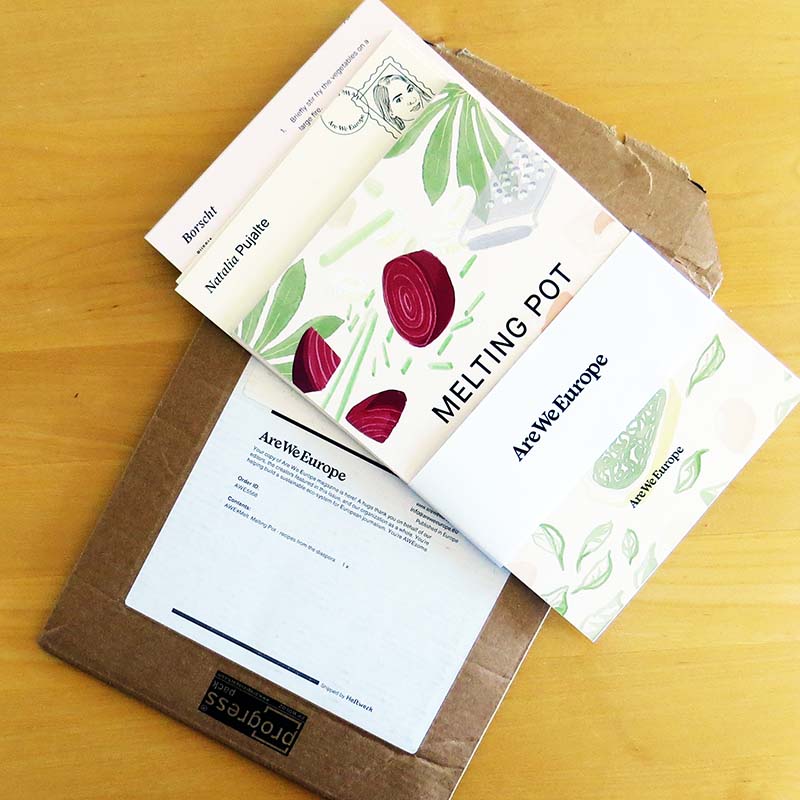
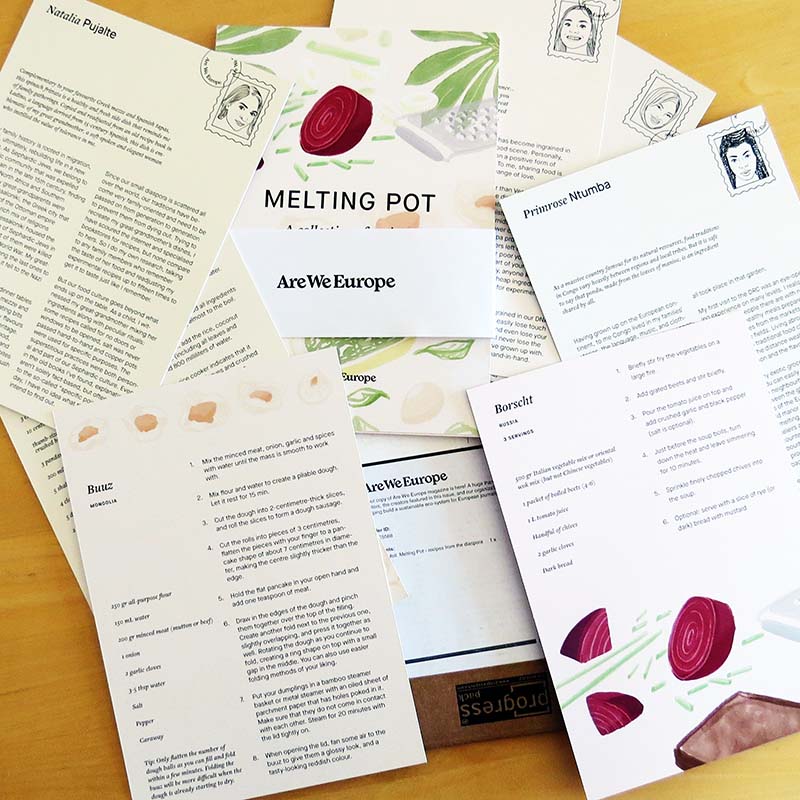
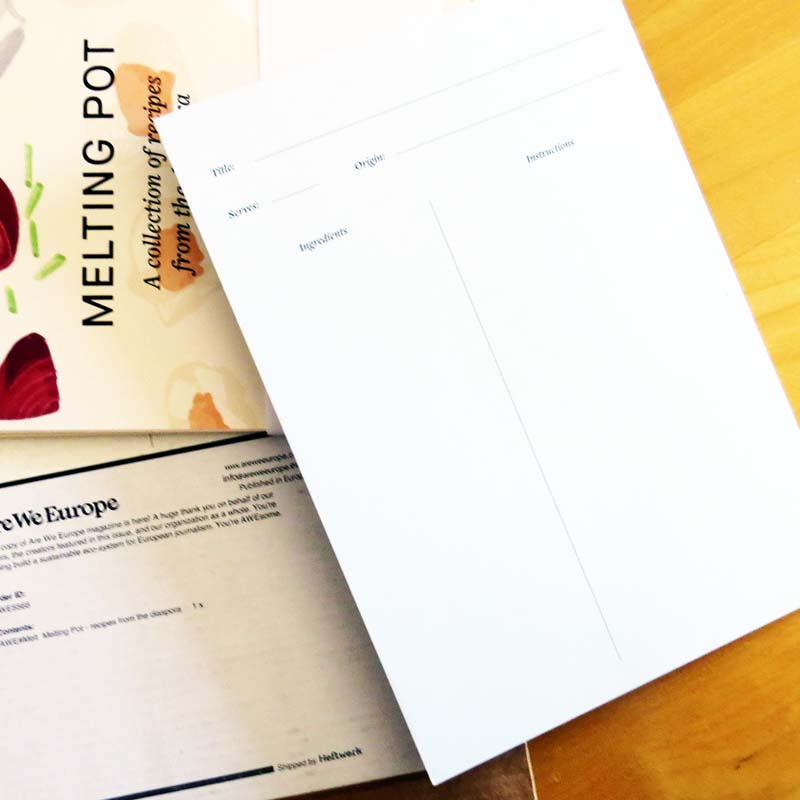
Salmon latkes?
I think my grandmother was herself trying to reproduce something from her own childhood’s family kitchen. Her parents were Jewish immigrants from Odessa. She was born there, brought to England as a babe in arms. Gran’s family lived in London’s East End, the anciently established immigrant quarter. I don’t think you could describe them as wealthy. And, yes, maybe she wasn’t such a good cook. So I think her “salmon cutlets” were an attempt to imitate salmon latkes. But she was using the cheapest of ingredients.
Out on the Internet I find recipes of various sorts. Most seem to require fresh salmon, which you have to fry or poach first, and potatoes. Even the ones with tinned salmon call for potatoes. It seems that latkes are basically potato cakes. Gran didn’t use potatoes.
I can find tuna and rice fishcake recipes, and the tuna comes out of a can, but the rice has to be specially made. I know for sure that Gran used leftover rice.
Shopping
I go out shopping. Here in Sweden tinned salmon is simply not available, at least not in any of the shops I visit. Vacuum packed gravlax or smoked salmon, yes. Fresh salmon, yes, definitely, at an exorbitant price. Tinned sardines no problem. Tinned tuna? Eventually I find some. It wasn’t in hiding, I just didn’t look in any of the right places. I wouldn’t call it poor man’s food exactly, but a tin of tuna chunks in water does cost less than a 90 minute bus ticket so, maybe.
(No, I do not habitually buy either tuna or salmon, although salmon is the only fish I would voluntarily buy when I’m on cooking duty.)
My first effort involved draining the tuna and adding chopped tomato and a squeeze of tomato paste. With no rice made (I forgot I’d need it), I resorted to breadcrumbs. The results were compact and more like bread-cakes than fishcakes.
The second attempt
For my second attempt I kept back some rice from an earlier meal. Also, this time around I added salt, pepper and paprika powder. Better ingredients but the cakes still didn’t really work. The mixture didn’t hold together and I ended up adding breadcrumbs again, though not as much as the first time. From the mixture I moulded the fishcakes Then I fried them in cooking oil.
About half of them fell apart in the cooking process. Fortunately, the results of the experiment were all edible. They didn’t taste right, they didn’t have the right consistency, they were very greasy. (I don’t remember Gran’s fishcakes being greasy.) But I could eat them. I’m on the right track. I’m clearly going to have to work on squeezing much more water out of the tuna. And maybe not including the tomato pulp or lemon juice. Maybe lemon zest?
You see, I’m already thinking about experiment number three. But I can’t yet complete the recipe card to send back to Are We Europe.
Still, I can write a blog post about trying.
